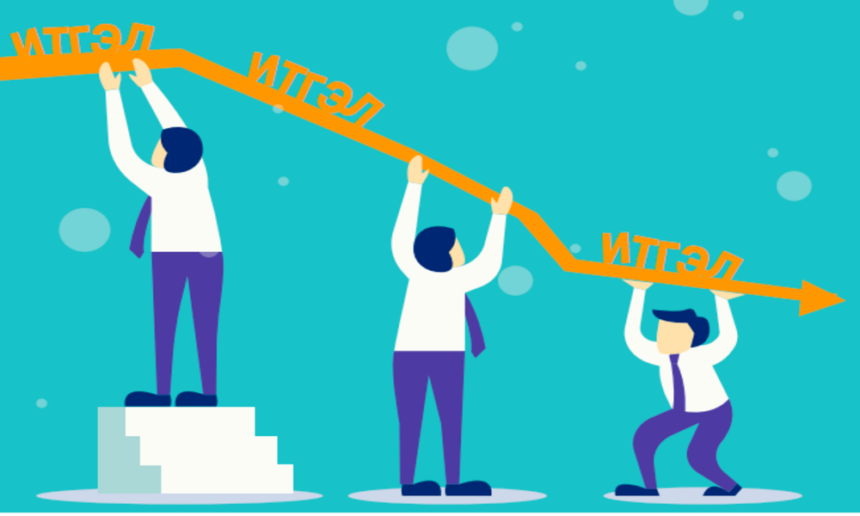Today Mongolia is not only facing an economic crisis but also a crisis of trust.
The people have become used to going through economic crises and declines – seeing the tugrug weaken, prices rise, the public budget run larger deficits, and government officials borrow from abroad using the names of khaans from the past. What usually happens next is that the government drowns in debt from those loans and eventually comes close to not even being able to make the interest payments. This where the International Monetary Fund (IMF) steps in with soft loans, allowing the city to survive the winter. Then comes the pathetic moment of politicians positioning the loans as a feat they have accomplished. When the prices of copper and coal go up in the cycle, the government starts raising the salaries of public servants with the additional revenue. As the private sector cannot do the same, the workforce often prefers to go abroad to work, especially in Korea.
Lately we have been strongly feeling the waves of another crisis – a crisis in trust. Experts consider that the development of a country depends on how much trust people put in their government, the private sector, media, and non-governmental organizations.
Mongolians increasingly have less trust in government organizations. The human resources of our government organizations are basically solely made up of members and supporters of either the Democratic Party or the Mongolian People’s Party, who have been in power one after another almost for the last 30 years. The reality can be seen from these new, specific examples.
Who is telling the truth? IAAC or Minister of Environment and Tourism?
The Independent Authority Against Corruption (IAAC) issued a statement on 27 August 2018, saying ‘Two hundred million tugrugs were budgeted for renovations at the Ministry of Environment and Tourism building and supplying conference hall equipment. Part of this money may have been transferred to a company named Erdenezul and turned into cash using different cost accounts, including books and leaflets. Also, the renovation work may then have been completed by another company connected to the Minister of Environment and Tourism.’
N. Tserenbat, Minister of Environment and Tourism, responded on 30 August, saying ‘I’ve seen what the IAAC said. Their formal statement said that the renovation work may have been done by a company connected to the minister. I would like to formally say on the record that none of the 26 companies I included in my income statement were connected to any of these works.’
What it tells us is that the IAAC uses language such as ‘may have been’ to accuse someone while the minister claims that it is false, politicized news because none of his 26 companies are connected to the case. This prompts us to sternly pose the question ‘Who is telling the truth? A government institution or a government minister?’
Who is telling the truth? Member of Parliament or the company?
On 30 August, MP Enkhbold Luvsan made the following statements:
- It has been proven that 268,300 tonnes of coal was stolen from the wealth of the Mongolian people. A working group led by Finance Minister Ch. Khurelbaatar examined this case… 390,000 tonnes of coal was mined from the Tavantolgoi deposit and had no documentation at the General Customs Authority… It was decided that the case to be referred to law enforcement.
- The General Authority of Border Protection reported that a total of 849,121 trucks crossed the Mongolian border in 2013-2017, while this number stood at 814,000 by the calculations of the General Customs Authority. So there is a difference of 35,000 trucks… If the trucks were transporting coal, the amount in question may be around 3 million tonnes.
- The General Authority of State Inspection has concluded that 340,000 tonnes of coal were lost from Erdenes Tavan Tolgoi… This equals 25 million USD (60 billion MNT) in value. You could build 25-30 schools with a capacity of 1,000 students (schools for 60,000 children with two shifts) with those funds.
- …Tavantolgoi Trans Company took 390,000 tonnes of coal across the border without any financial documentation as to where the coal was sourced.
- When you want to investigate, Tavantolgoi Trans Company claims that their documents were lost during a flood. The locally owned Tavantolgoi Company has not had a mine plan for six years and has never had a detailed environmental management plan approved. Didn’t the minerals authority notice this? What have the Ministry of Environment and Tourism and other organizations that are supposed to do the checks been doing?
To sum up, what MP Enkhbold is saying is that the Mongolian government is failing to do its job properly and has basically gone bankrupt, allowing companies to choose and mine coal from anywhere and take 360,000 tonnes of coal abroad without even putting their name on an official paper. The difference between the number of trucks calculated by the customs and the border protection authority stands at 35,000, not 35. The conveyed meaning is that anything can be carried across the border. Therefore, trust in government institutions has fallen to the floor.
On 3 September 2018, Tavantolgoi Trans Company, which is a subsidiary of Ajnai Corporation, released a statement saying ‘MP Enkhbold has made serious allegations around 390,000 tonnes of coal being taken across the border without documentation and proof being found that coal was stolen… The honorable lawmaker has forfeited the basic principle of law – anyone is innocent until proven guilty in court.’ The locally-owned Tavantolgoi Company is 51 per cent owned by Umnugovi aimag, 20 per cent by Ajnai Corporation, and the rest by the public.
The statement released by the company did not comment on whether the coal in question crossed the border or not, but only said that the truth will be found in court. If they actually did carry coal across the border illegally, the trust in businesses would further weaken among the people. It is impossible to tell who is telling the truth – the MP or the company.
Reflection
The weakest of our three branches of government is the judiciary. The Mongolian court is still failing to find the truth in dozens of sensational cases of corruption. Some get detained, and the coverage is loud. But then all cases become forgotten after some time. Mongolia’s judiciary has turned into a performance theater, where law enforcement agencies play different roles in different cases, having abandoned their primary duties.
This is why the trust people put in the government is at crisis level. Today the legislative, executive, and judicial branches of our government are completely and thoroughly allocated to different political and business groups.
The Mongolian state today is not able to establish the truth in both cases above. They cannot even provide a coherent, accurate update.
The crisis of trust has not suddenly formed today. It is the sustained consequence of government entering a corruption network, with land and natural wealth stolen under the name of political parties, and a lack of accountability when public property has been stolen over the years.
Civil participation is critical in improving the trust in government. In a democracy, people must be able to participate in free elections, but also provide oversight on their elected representatives. Civil society needs to move from quantity to quality, and, in order to do so, every person needs to demand transparency and accountability from the government. There is no other choice.
2018.09.05
Trans. by B.Amar












